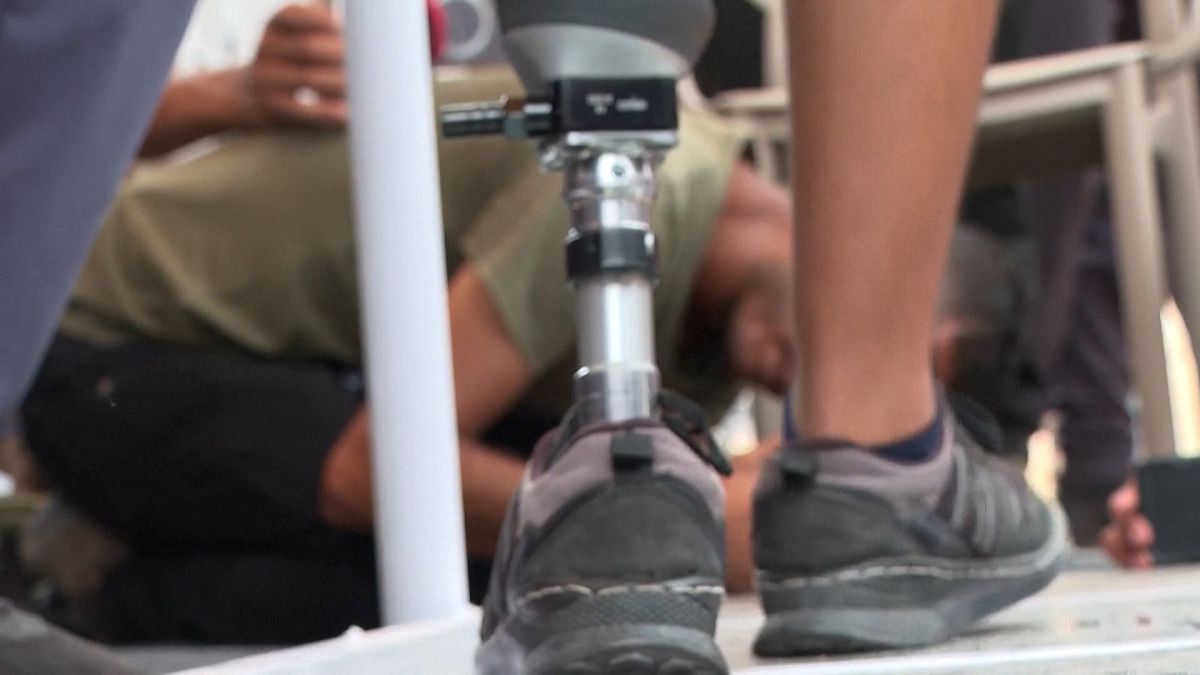Jordan’s army has recently launched a humanitarian initiative in Gaza by setting up mobile clinics to assist amputees in the region. The goal of this initiative is to provide support to approximately 14,000 people who have been affected by amputations due to various factors, including injuries sustained during Israeli operations. One of the beneficiaries of this program is 30-year-old Rezk Tafesh, who was fitted with a prosthetic leg thanks to the assistance provided by the mobile clinics.
The mobile clinics deployed by Jordan’s army have a capacity to handle between 5 to 10 cases at a time, which allows for a significant number of individuals to receive the necessary medical attention. Despite this commendable effort, it is important to note that a staggering 90 percent of Gaza’s population is currently displaced, highlighting the urgent need for further support and resources in the region. The mobile clinics represent a vital lifeline for those in need of prosthetic limbs and specialized medical care.
The provision of prosthetic limbs and medical assistance to those in need is essential for improving their quality of life and enabling them to regain their independence. By setting up mobile clinics in Gaza, Jordan’s army is not only addressing a pressing humanitarian need but also demonstrating its commitment to supporting vulnerable populations in the region. The presence of these clinics is a testament to the ongoing efforts to provide essential services to those affected by conflict and displacement.
The assistance provided by the mobile clinics goes beyond medical aid, as it also offers hope and a sense of normalcy to individuals who have experienced traumatic amputations. Through the provision of prosthetic limbs, recipients like Rezk Tafesh are able to regain mobility and begin the process of rebuilding their lives. This compassionate initiative by Jordan’s army underscores the importance of international solidarity and assistance in times of crisis, particularly in conflict-affected areas such as Gaza.
As the mobile clinics continue to operate in Gaza, it is crucial for the international community to provide ongoing support and resources to ensure the sustainability of these efforts. The need for prosthetic limbs and specialized medical care is likely to remain high in conflict-affected areas, highlighting the importance of long-term solutions and investments in healthcare infrastructure. By standing in solidarity with those in need, Jordan’s army is setting an example for other nations and organizations to follow in providing essential services to vulnerable populations across the globe.
In conclusion, the establishment of mobile clinics in Gaza by Jordan’s army represents a significant step towards addressing the urgent medical needs of amputees in the region. Through the provision of prosthetic limbs and specialized medical care, these clinics are offering vital support to individuals like Rezk Tafesh and thousands of others who have been affected by conflict and displacement. As the mobile clinics continue to operate, it is essential for the international community to come together and provide the necessary resources to ensure the sustainability of these lifesaving initiatives. Jordan’s army’s commitment to assisting vulnerable populations in Gaza serves as a powerful reminder of the importance of humanitarian aid and solidarity in times of crisis.











